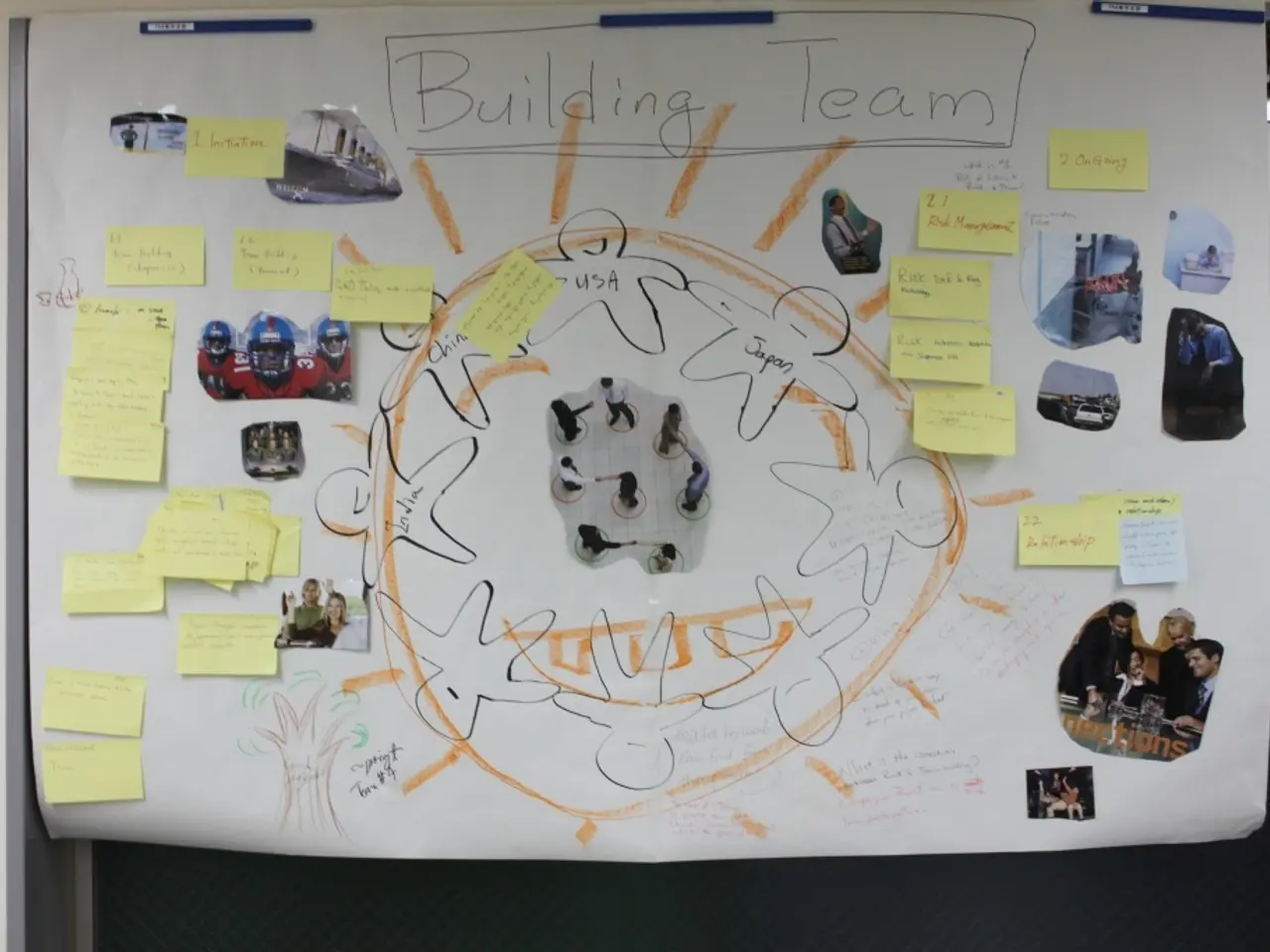Enhanced Brain Resilience: 3 Methods Cognitive Reserves Fortify Against Mild Cognitive Decline.
================================================================
In a world where the threat of Alzheimer's disease (AD) looms large, particularly among the elderly, a fascinating concept known as cognitive reserve (CR) has emerged as a potential beacon of hope. This article explores the role of cognitive reserve in protecting against AD and how it can help us maintain a sharper mind as we age.
Cognitive reserve, in essence, is the brain's ability to maximise its performance through multiple brain networks. It allows for more efficient and flexible brain network function, even in the presence of AD pathology. This ability, often measured by the integrity and connectivity of certain brain networks such as the frontoparietal central executive network (CEN) and salience network (SCN), moderates the relationship between amyloid-beta (Aβ) pathology and cognitive decline.
Research has shown that higher cognitive reserve is associated with a decreased risk of Alzheimer's disease and related dementias (ADRD), especially in non-frail and mildly frail older adults. This protective effect partly arises because CR modulates AD biomarkers and pathology, delaying or reducing the clinical impact of the disease.
However, it is important to note that cognitive reserve does not prevent the underlying pathological changes of Alzheimer’s disease from occurring; rather, it helps the brain cope with these changes more effectively by maintaining neural efficiency and flexibility. Mechanistically, factors such as noradrenergic regulation of astrocytes—supporting neural homeostasis—may play a role in shaping cognitive reserve.
The importance of lifelong cognitive engagement, education, and maintaining brain network integrity as protective strategies against Alzheimer's disease cannot be overstated. Engaging in intellectually stimulating leisure activities, such as learning a new language, playing chess, gardening, dancing, or meeting family and friends, can all help improve cognition. Participating in a variety of hobbies at 65 years of age is associated with better memory, language, and higher thinking skills.
Intriguingly, cognitive reserve can also contribute to a higher quality of life, even in the presence of disability. It helps older adults cope better with challenges, and those with high levels of cognitive reserve experience lower levels of apathy in older age. Furthermore, higher cognitive reserve is associated with higher self-esteem and self-reliance.
The life of Sister Matthia, who lived to the ripe age of 105, serves as a testament to the power of cognitive reserve. A schoolteacher for 50 years, her day was devoted to spirituality, helping the poor and needy, teaching, exercise, and hobbies like knitting. She did not smoke or consume alcohol and ate in moderation. Despite showing clear signs of Alzheimer's disease after her death, Sister Matthia had an excellent memory until the day she passed away.
In conclusion, cognitive reserve provides resilience by allowing more efficient and flexible brain network function despite AD pathology, moderating the impact of Aβ and other AD biomarkers on clinical cognitive decline, and decreasing the risk and delaying the onset of Alzheimer's symptoms, especially in less frail individuals. By engaging in intellectually stimulating activities throughout our lives, we can help build our cognitive reserve and maintain a sharper mind as we age.
Sustaining a lifestyle that emphasizes science-backed health-and-wellness practices, including mental health, may contribute to building and preserving cognitive reserve, thereby reducing the risk of Alzheimer's disease and related dementias. As demonstrated by Sister Matthia's life, ongoing cognitive engagement, education, and the pursuit of hobbies can significantly impact a person's ability to maintain a sharp mind during the aging process.




